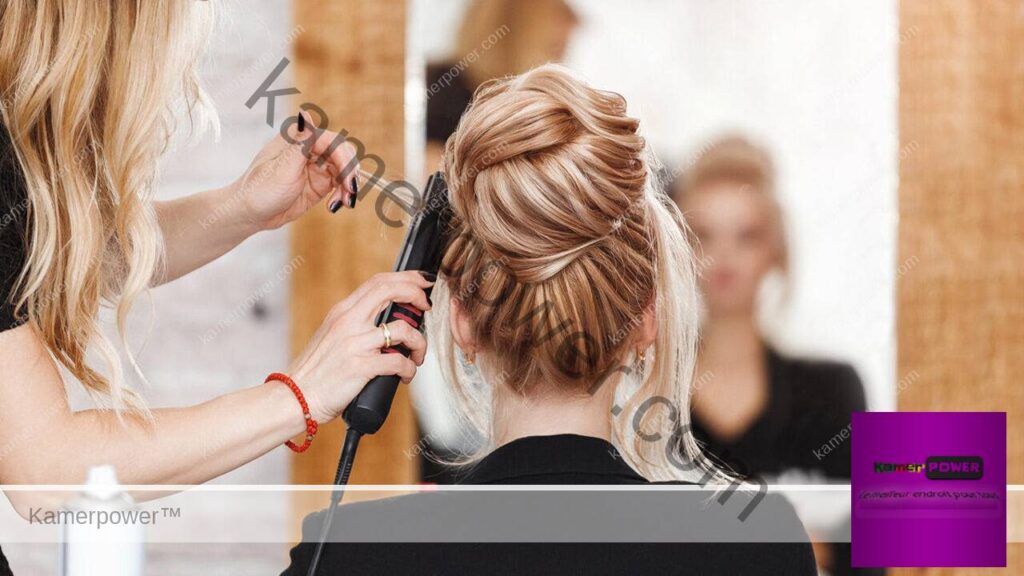If you’ve been considering pursuing a career in the beauty industry or simply expanding your skills and knowledge, you may be wondering how long the average beauty course is online. Look no further for answers! Centre of Wellness provides in-depth beauty training courses that can be completed entirely online. Whether you’re interested in learning about makeup artistry, skincare, or hair styling, these courses offer comprehensive training that is sure to elevate your beauty skills. Get ready to embark on an exciting learning journey as you delve into the world of beauty and discover the various durations of Online Beauty Courses available to you.
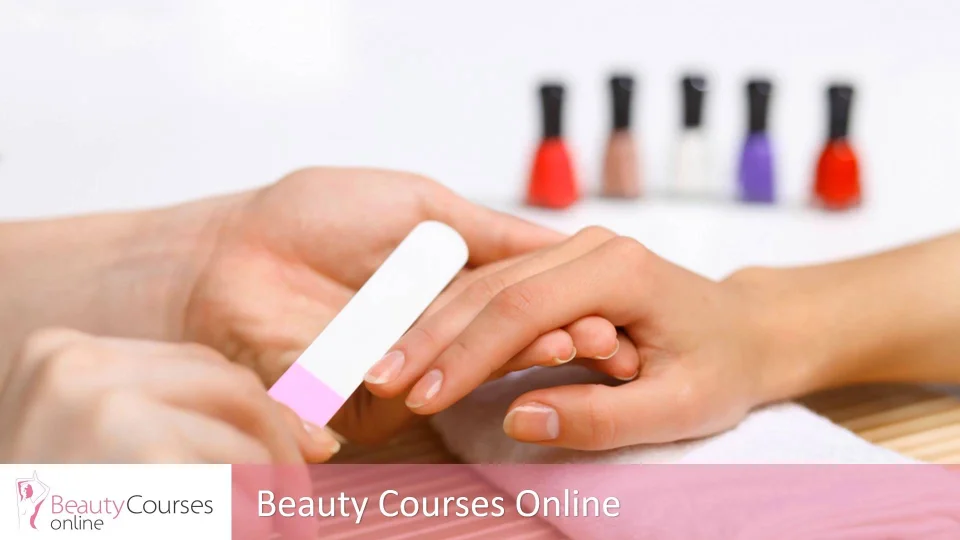
This image is property of embed-ssl.wistia.com.
Types of Beauty Courses
Certification Courses
Certification courses in the field of beauty are designed to provide individuals with specialized skills and knowledge in a particular area of beauty. These courses offer a focused curriculum that prepares students for specific beauty-related tasks or roles. Certification courses are often shorter in duration compared to diploma courses or degree programs, making them a popular choice for individuals looking to acquire specific skills quickly.
Diploma Courses
Diploma courses in beauty offer a more comprehensive curriculum compared to certification courses. These courses aim to equip students with a broader understanding of the beauty industry and a range of practical skills. Diploma courses are typically longer in duration and provide students with in-depth knowledge and hands-on training in various aspects of beauty, such as skincare, makeup artistry, hair styling, and nail technology.
Degree Programs
Degree programs in beauty are the highest level of academic achievement in the field of beauty. These programs are usually offered by colleges or universities and provide students with a well-rounded education in beauty theory, practical skills, and business management. Degree programs are typically longer in duration and offer a more extensive curriculum compared to certification courses and diploma courses. Graduates of beauty degree programs often pursue careers in leadership roles, research, education, or entrepreneurship within the beauty industry.
Duration of Beauty Courses
The duration of beauty courses can vary depending on the type of course and the educational institution offering it. Below, we will explore the three main categories of beauty courses in terms of duration: short-term, medium-term, and long-term.
Short-Term Beauty Courses
Short-term beauty courses are designed to provide individuals with quick and focused training in specific beauty skills. These courses are typically completed within a few weeks or months and are ideal for individuals who wish to acquire immediate and practical skills without investing a significant amount of time. Short-term courses are often offered as workshops or specialized training programs in areas such as makeup application, hairstyling techniques, skincare treatments, or nail art.
Medium-Term Beauty Courses
Medium-term beauty courses offer a more extensive curriculum compared to short-term courses. These courses typically span several months to a year and provide students with a comprehensive understanding of different beauty techniques and practices. Medium-term courses often cover a wider range of topics, such as advanced makeup artistry, hair coloring and cutting, spa therapies, and salon management. These courses are suitable for individuals who wish to pursue careers as beauty professionals or want to enhance their existing skills in a particular area of beauty.
Long-Term Beauty Courses
Long-term beauty courses, such as diploma courses and degree programs, provide students with a deep understanding of the beauty industry and its various aspects. These courses often span multiple years, with diploma courses typically lasting one to two years and degree programs lasting three to four years. Long-term courses offer a comprehensive curriculum that covers both theoretical knowledge and practical skills. Students enrolled in long-term beauty courses gain a deeper understanding of beauty techniques, product knowledge, industry trends, and business management skills.
Factors Affecting Course Duration
Various factors can impact the duration of beauty courses. These factors are taken into consideration by educational institutions when designing their course structures and determining the appropriate duration for each type of course. The following factors play a significant role in determining how long a beauty course may take to complete:
Curriculum Complexity
The complexity of the curriculum is an essential factor in determining the duration of a beauty course. Courses that have a more extensive and in-depth curriculum may naturally require a longer duration to cover all the necessary topics and practical training. For example, a diploma course or a degree program that covers multiple beauty disciplines and includes advanced techniques will typically have a longer duration compared to a certification course that focuses on a single skill or topic.
Practical Training Requirements
Beauty courses often include practical training components where students are required to practice their skills under the guidance of instructors or within a salon or spa setting. The duration of the practical training can vary depending on the course and the specific skills being taught. Hands-on experience is crucial in the beauty industry, and courses with more extensive practical training requirements may have longer durations to ensure students have sufficient time to master the necessary skills.
Self-Paced Learning
Some beauty courses offer self-paced learning options, allowing students to progress through the course material at their own speed. This flexibility can impact the overall duration of the course, as students who dedicate more time to their studies may be able to complete the course sooner. However, it is important to note that self-paced learning options may still have a recommended timeline to ensure students meet the required learning objectives within a reasonable timeframe.
Full-Time versus Part-Time Learning
The choice between full-time and part-time learning can also influence the duration of beauty courses. Full-time programs typically require students to dedicate a significant amount of time to their studies, allowing them to complete the course more quickly. On the other hand, part-time programs cater to individuals who may have other commitments, such as work or family responsibilities, and may require a more extended duration to complete the course. Educational institutions often offer both full-time and part-time options to accommodate different student needs.
Certification Courses
Introduction to Certification Courses
Certification courses in the field of beauty are designed to provide individuals with specialized skills and a recognized certification in a focused area of beauty. These courses typically focus on a specific aspect of beauty, such as makeup artistry, skincare, or nail technology. Certification courses are ideal for individuals who want to acquire specific skills quickly or enhance their existing beauty knowledge in a particular area.
Typical Duration of Certification Courses
The duration of certification courses can vary depending on the course content and the educational institution offering it. Generally, most certification courses in beauty range from a few weeks to a few months in duration. The shorter duration allows students to receive targeted training and acquire the necessary skills efficiently. However, it is important to note that some certification courses may have additional requirements, such as completing practical assignments or undergoing supervised training, which may extend the overall duration.
Course Examples
Some examples of certification courses in beauty include:
- “Advanced Makeup Artistry Certification Course” – 6-week course covering advanced techniques in professional makeup application, including bridal, editorial, and special effects makeup.
- “Nail Technician Certification Program” – 12-week course providing comprehensive training in nail technology, including acrylics, gels, nail art, and safety and sanitation practices.
- “Skincare Specialist Certification” – 8-week course focusing on skincare techniques, product knowledge, and client consultation skills, preparing students for careers as skincare specialists or estheticians.
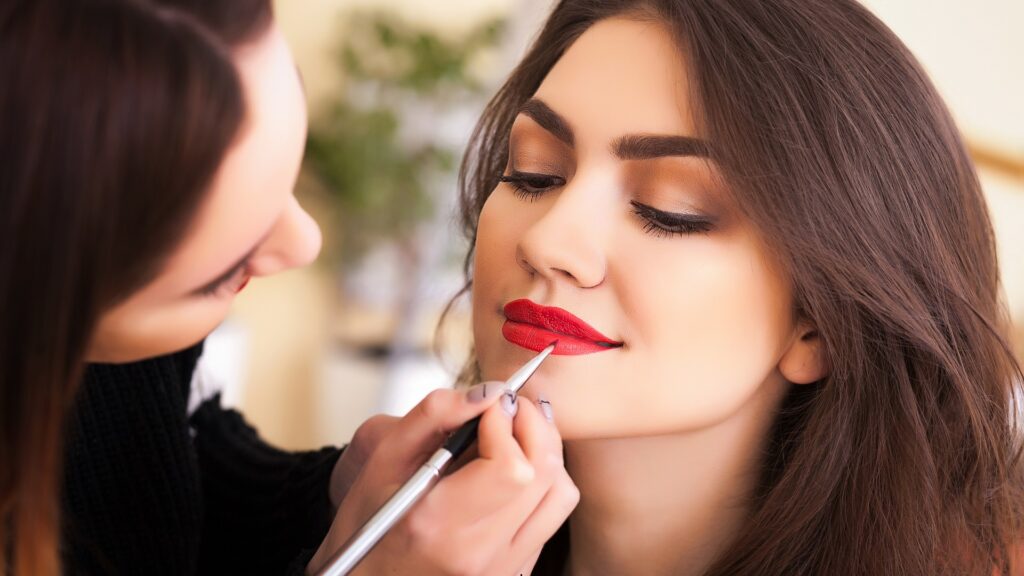
This image is property of miragespa.ca.
Diploma Courses
Introduction to Diploma Courses
Diploma courses in beauty offer a more comprehensive curriculum compared to certification courses. These courses provide students with an in-depth understanding of various aspects of beauty and equip them with a broader range of practical skills. Diploma courses are designed to prepare students for careers in the beauty industry and often cover topics such as makeup artistry, hairstyling, skincare treatments, spa therapies, and salon management.
Typical Duration of Diploma Courses
Diploma courses in the field of beauty generally have a longer duration compared to certification courses. These courses typically last one to two years, depending on the specific curriculum and the educational institution. The longer duration allows students to receive comprehensive training in various beauty disciplines and gain practical experience through internships or work placements. Diploma courses are suitable for individuals seeking a more in-depth education in beauty and aiming for professional careers within the industry.
Course Examples
Some examples of diploma courses in beauty include:
- “Professional Beauty Therapy Diploma” – 1-year course covering a wide range of beauty treatments, such as facials, body massages, waxing, and makeup application, along with customer service and business skills required in a salon or spa setting.
- “Hairdressing and Salon Management Diploma” – 2-year course focusing on hair cutting and styling techniques, color application, salon operations, and client consultation, preparing students for careers as professional hairstylists or salon managers.
- “Spa and Wellness Therapy Diploma” – 1.5-year course providing comprehensive training in spa therapies, such as body wraps, hydrotherapy, aromatherapy, and relaxation techniques, preparing students for roles in luxury spas or wellness centers.
Degree Programs
Introduction to Degree Programs
Degree programs in beauty offer the highest level of academic achievement in the field of beauty. These programs are typically offered by colleges or universities and provide students with a well-rounded education that combines theoretical knowledge, practical skills, and business management training. Degree programs prepare students for leadership roles, research positions, teaching careers, or entrepreneurial ventures within the beauty industry.
Typical Duration of Degree Programs
Degree programs in beauty often span three to four years, depending on the educational institution and the specific program. The longer duration allows students to delve deep into beauty theory, scientific principles, advanced techniques, research methodologies, and business aspects related to the industry. Degree programs typically include practical training, internships, or research projects that provide students with hands-on experience and prepare them for specialized careers or further advanced studies in beauty-related fields.
Course Examples
Some examples of degree programs in beauty include:
- “Bachelor of Beauty Science” – 4-year program covering a wide range of beauty disciplines, including cosmetology, dermatology, cosmeceuticals, research methodologies, and business management in the beauty industry. Graduates of this program can pursue careers as beauty product developers, researchers, or consultants.
- “Bachelor of Spa and Wellness Management” – 3-year program combining business management with specialized knowledge in spa therapies, wellness practices, marketing, and customer service. Graduates can enter the industry as spa managers or wellness program coordinators.
- “Bachelor of Makeup Artistry and Special Effects” – 4-year program focusing on advanced makeup techniques, special effects makeup, prosthetics, film and theater makeup, and creative design. Graduates can pursue careers as professional makeup artists for film, television, or theater productions.
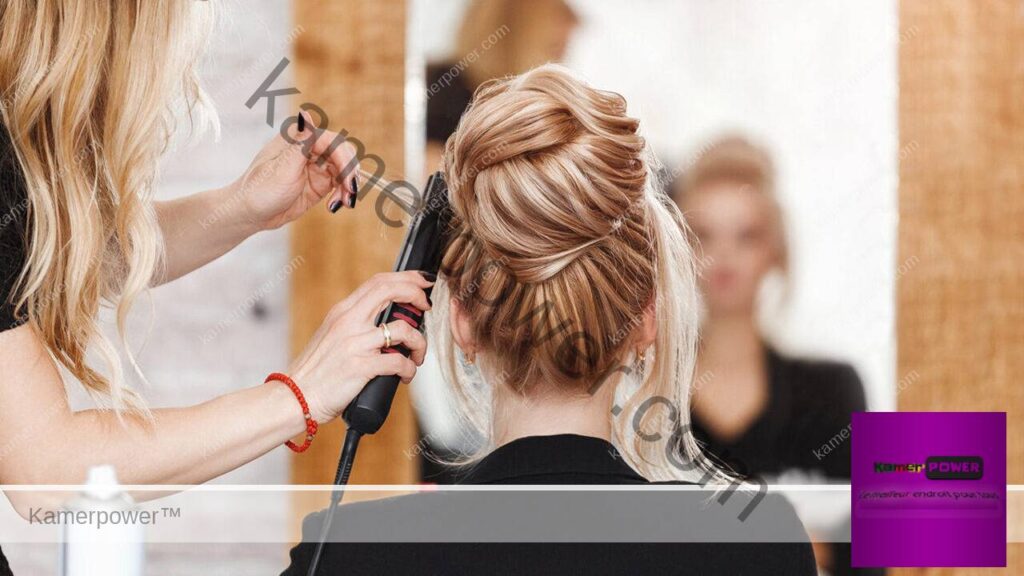
This image is property of cdn.kamerpower.com.
Short-Term Beauty Courses
Definition of Short-Term Beauty Courses
Short-term beauty courses are designed to provide individuals with quick and focused training in specific beauty skills or techniques. These courses are often targeted towards those who want to learn a specific beauty skill or enhance their existing knowledge in a short time frame. Short-term beauty courses are ideal for individuals who prefer a more accelerated learning experience or have limited availability due to work or other commitments.
Typical Duration of Short-Term Beauty Courses
Short-term beauty courses can range from a few days to a few months in duration, depending on the specific course content and the level of skill being taught. Some short-term courses may be as brief as a one-day workshop, providing an intensive introduction to a particular beauty technique. Other short-term courses may last a few weeks or months, allowing students to gain more in-depth knowledge and hands-on experience in a specific area of beauty.
Course Examples
Some examples of short-term beauty courses include:
- “Introduction to Bridal Makeup” – A 2-day workshop that provides aspiring makeup artists with essential bridal makeup techniques and tips to create stunning bridal looks.
- “Basic Hair Styling Techniques” – A 4-week course that covers fundamental hair styling techniques, including blow-drying, curling, and updos, providing students with foundational skills in hairstyling.
- “Express Skincare Course” – A 1-week course focusing on basic skincare treatments, including cleansing, exfoliating, and mask application, allowing individuals to learn basic skincare techniques for personal use or as an entry-level competency in the beauty industry.
Medium-Term Beauty Courses
Definition of Medium-Term Beauty Courses
Medium-term beauty courses offer a more comprehensive curriculum compared to short-term courses and provide individuals with a deeper understanding of beauty techniques and practices. These courses are designed to cover a broader range of topics and equip students with a more extensive skill set in specific beauty disciplines. Medium-term beauty courses are suitable for individuals who want to gain a more thorough education in beauty or pursue careers as beauty professionals.
Typical Duration of Medium-Term Beauty Courses
Medium-term beauty courses typically last several months to a year, depending on the specific course content and structure. These courses offer a balance of theoretical knowledge and practical training, allowing students to develop a strong foundation in their chosen area of beauty. The longer duration of medium-term courses permits students to receive comprehensive training in advanced techniques, gain hands-on experience, and develop their confidence in performing beauty treatments or services.
Course Examples
Some examples of medium-term beauty courses include:
- “Advanced Makeup Artistry Program” – A 6-month course that builds on foundational makeup techniques and teaches advanced skills in areas such as airbrush makeup, special effects makeup, and high-fashion editorial looks.
- “Advanced Hair Coloring and Styling Course” – A 9-month course focusing on advanced hair coloring techniques, color correction, balayage, and precision haircuts, providing students with expertise in creating diverse hair looks for clients.
- “Advanced Skincare and Spa Therapy Program” – A 12-month course that covers an in-depth understanding of skincare treatments, advanced spa therapies, wellness practices, and business management skills, preparing individuals for roles as skincare specialists or spa therapists.
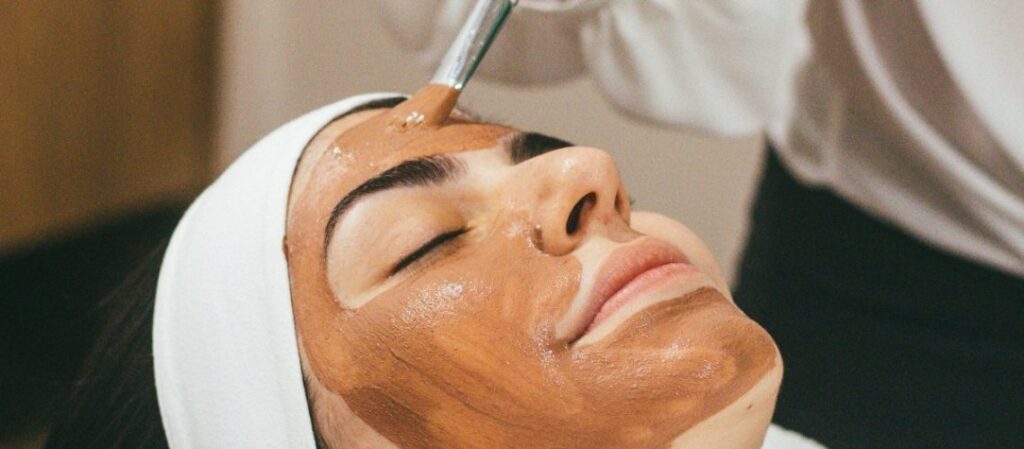
This image is property of www.australianbeautyschool.com.au.
Long-Term Beauty Courses
Definition of Long-Term Beauty Courses
Long-term beauty courses, such as diploma courses and degree programs, offer the most comprehensive education and training in the beauty industry. These courses encompass a vast range of beauty disciplines and provide students with an extensive understanding of the industry, advanced techniques, and practical experience. Long-term beauty courses are suitable for individuals who are committed to pursuing a career in beauty and want a comprehensive education that prepares them for various roles within the industry.
Typical Duration of Long-Term Beauty Courses
Long-term beauty courses, such as diploma courses, generally last one to two years, while degree programs can span three to four years. The longer duration of these courses allows students to gain a holistic education in beauty, covering both theoretical knowledge and hands-on training. Students enrolled in long-term courses have the opportunity to specialize in specific aspects of beauty, such as makeup artistry, skincare, hair styling, or salon management, and can develop a deep understanding of industry trends, professional best practices, and business strategies.
Course Examples
Some examples of long-term beauty courses include:
- “Professional Beauty Diploma” – A 1-year course that covers a wide range of beauty disciplines, including makeup artistry, skincare, nail technology, and salon management, providing students with a comprehensive understanding of the beauty industry and practical skills required in different beauty roles.
- “Advanced Hairstyling Diploma” – A 2-year course specializing in advanced hair cutting, coloring, styling, and precision techniques, preparing students for professional careers as hairstylists or salon owners.
- “Bachelor of Cosmetology” – A 4-year degree program that combines comprehensive theoretical knowledge and practical training in various beauty disciplines, including skincare, makeup artistry, hair care, and spa therapies. Graduates of this program can pursue diverse career paths within the beauty industry or pursue advanced studies in specialized areas of beauty.
Full-Time versus Part-Time Learning
Influence on Course Duration
The choice between full-time and part-time learning options can significantly impact the duration of beauty courses. Full-time learning requires students to dedicate a substantial amount of time to their studies, often completing a higher volume of coursework in a shorter period. This accelerated pace allows students to complete their beauty courses more quickly. On the other hand, part-time learning allows students to spread their studies over a more extended period, enabling them to balance their studies with other commitments, such as work or family responsibilities. As a result, part-time students may require a longer duration to complete their beauty courses compared to full-time students.
Example Courses with Full-Time and Part-Time Options
Many educational institutions offer both full-time and part-time options for beauty courses to accommodate the diverse needs and schedules of their students. Here are some examples of beauty courses that provide both full-time and part-time learning options:
- “Full-Time Professional Makeup Artistry Course” – A 6-month course that immerses students in intensive makeup training on a full-time basis. This accelerated program allows students to complete their certification or diploma quickly and enter the beauty industry sooner.
- “Part-Time Esthetics Program” – A 1-year diploma course that allows students to attend classes on a part-time basis, spreading their studies over a longer duration to accommodate work or personal commitments. This option provides flexibility for individuals who cannot commit to full-time studies.
- “Flexible Hairdressing Course” – A course that offers a combination of full-time and part-time options, allowing students to choose the learning pace that suits their availability. Students can elect to complete the program on a full-time basis for faster completion or spread their studies over a more extended period by attending classes part-time.
In conclusion, beauty courses come in various types and durations to cater to diverse learning needs and career goals. Certification courses offer specialized skills in a shorter duration, diploma courses provide a more comprehensive education, and degree programs offer the highest level of academic achievement in the field of beauty. The duration of beauty courses can be influenced by factors such as the curriculum complexity, practical training requirements, self-paced learning options, and full-time or part-time learning choices. Whether you choose a short-term course to acquire specific skills or a long-term course for a comprehensive education, the beauty industry offers a wide range of opportunities for individuals passionate about the art and science of beauty.

